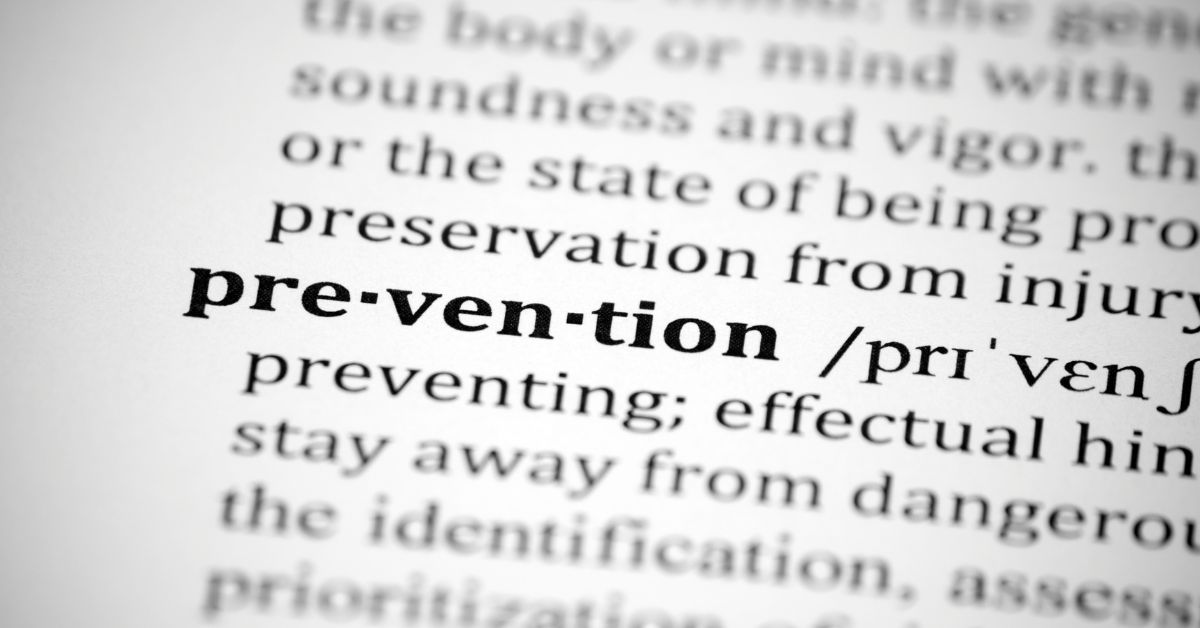Addiction, it’s everywhere. A disease that affects individuals and tears at the very fabric of families. But we can’t ignore the impact it has on those closest to the ones struggling with the disease of addiction. That’s where understanding becomes essential.
As an addiction expert and recovery coach, I’ve witnessed firsthand the emotional toll, the financial drain, and the shattered relationships that it brings. But amidst the darkness, there is hope.
In this article, we’ll explore the gripping consequences it has on families, and together, we’ll uncover the path to healing and recovery. Are you ready to embark on this journey with me? Let’s dive in and discover the profound effects of drug addiction on family and friends and, more importantly, how we can find strength and resilience in the face of adversity.
Emotional Consequences

When a loved one is caught in the grip, the impact reverberates far beyond the individual struggling with the substance. It reaches into the lives of their friends and family entirely, who often find themselves grappling with a range of emotional consequences. Understanding these emotional burdens is crucial to provide the support and empathy that families desperately need.
Stress
One of the most prevalent emotional consequences experienced by families is heightened stress levels. The constant worry, unpredictability, and chaos that accompany addiction can take a toll on the members of a family. The once stable and secure environment becomes overshadowed by the uncertainty of what each day may bring. The weight of carrying people who struggle to stop using drugs can lead to chronic stress, affecting both mental and physical health.
FREE: Get the 3 pieces of advice that helped me understand this disease of addiction
Anxiety and Depression
The presence of addiction in the family increases the risk of anxiety and depression among its members. The constant fear of the consequences that it can bring, such as financial instability, legal troubles, and deteriorating health, weighs heavily on their minds. Additionally, witnessing their beloved struggle and the toll it takes on their own lives can lead to a sense of helplessness and despair. It is important to recognize that anxiety and depression are normal reactions to such challenging circumstances.
Feelings of Guilt and Shame
Families often experience intense feelings of guilt and shame when confronted with a loved one touched by addiction. They may blame themselves, questioning what they could have done differently or how they may have contributed to this. This self-blame is not only unfair but also unproductive. This disease is influenced by various factors, and it is not the result of any single person’s actions or failures.
The social stigma associated with this adds another layer of shame and isolation for families. The fear of judgment and misunderstanding from others can prevent them from seeking support or discussing their experiences openly. It is crucial to create an environment that fosters empathy, understanding, and non-judgment, allowing families to navigate the challenges without the weight of unnecessary shame.
In the next section, we will explore the financial consequences that families often face as a result of a loved one’s addiction. Remember, you are not alone in this journey, and there is hope for healing and recovery. Let’s continue to uncover the impact of addiction and find ways to support and uplift one another along the way.
Financial Consequences

Addiction has far-reaching effects that extend beyond emotional and relational turmoil. It can also take a heavy toll on the financial well-being of families. The financial consequences can be overwhelming, adding an additional layer of stress and strain to an already challenging situation.
Addiction-related expenses can quickly accumulate, encompassing the costs of substances, medical treatments, therapy, and rehabilitation programs. These financial burdens can deplete savings, drain resources, and put significant tension on the family budget. Moreover, individuals struggling with it may experience job instability, leading to lost wages and reduced income.
As families navigate the complexities, the financial implications can create a sense of uncertainty and hardship. It’s important to recognize and address these challenges to seek the necessary support and resources. In the following sections, we will explore the various aspects of how addiction impacts families, with a focus on finding ways to overcome these challenges and help battle addiction together.
Relationship Consequences

Addiction can have profound and far-reaching effects on relationships, causing tension and turmoil within families. Let’s explore some of the specific consequences of it on various relationships and how they impact the individuals involved.
Marital/Partner Discord
When addiction enters a marriage or partnership, it often leads to a breakdown of communication and trust. The effects can manifest in conflicts, arguments, and a constant sense of uncertainty. Trust issues hurt feelings, and anxiety becomes prevalent, creating an atmosphere of tension and unease.
UPDATED: Discover the 3 life-changing things about addiction I wish I knew years ago
Parent-Child Relationship
Parental addiction significantly impacts the relationship between parents and their children. When a parent abuses drugs or alcohol, it can affect their ability to fulfill their parental responsibilities, resulting in emotional distance and neglect. Children may experience the consequences firsthand, witnessing arguments, financial struggles, or their parent’s unpredictable behavior under the influence.
The effects on children’s emotional, cognitive, and social development can be profound. Growing up in an environment puts children at an increased risk of being likely to abuse and develop their own substance use disorders later in life. It’s crucial to recognize the potential long-term consequences and prioritize support and intervention for children in these situations.
Sibling Relationships
Siblings of individuals addicted to drugs or alcohol often face strained relationships. The dynamics between siblings can shift, as one sibling or others may have to take on more responsibilities or become a caregiver to their addicted sibling. This imbalance can lead to resentment, tension, and feelings of unfairness within the family. It’s important to address these challenges and provide support to maintain healthy sibling relationships.
Extended Family Relationships
Addiction ripples through extended family relationships, impacting grandparents, aunts, uncles, and cousins. Family gatherings may become tense, and maintaining healthy connections can become challenging. The effects can extend beyond the immediate family, affecting the overall fabric of extended family relationships. It’s crucial to foster understanding, empathy, and support within the extended family network.
The damaging consequences on relationships are numerous and complex. However, it’s important to remember that recovery and healing are possible for both the individual dealing with addiction and their loved ones. Seeking professional help and support can play a pivotal role in rebuilding and repairing relationships affected by addiction.
To address these relationship challenges, let’s explore some effective strategies and resources in the next section.
Physical and Mental Health Consequences

Addiction can affect not only individuals but also their families, taking a toll on their physical and mental health. Let’s explore the consequences:
Neglect of Health and Wellbeing
- Families often prioritize the needs of the addicted loved one, neglecting their own health.
- Increased stress levels, weakened immune systems, and a higher susceptibility to illness can result.
Exposure to Violence and Abuse
- Addiction can contribute to an atmosphere of tension and conflict, leading to an increased risk of domestic violence and abuse.
- Family members may witness or experience verbal, emotional, or physical abuse.
Impact on Children’s Academic Performance
- Children in households affected by addiction may struggle academically.
- Emotional turmoil and instability can impede their concentration, memory retention, and overall academic achievement.
Development of Mental Health Issues in Children
- Children of parents suffering from addiction face a higher risk of developing mental health disorders themselves.
- Feelings of guilt, shame, and self-blame for their parent’s alcohol and substance abuse may contribute to anxiety, depression, and other mental health challenges.
GET: The 3 things that actually "allowed" me to help my son (and regain control again)
The physical and mental health consequences of addiction on family demand attention and support. It’s crucial for families to recognize the impact and seek assistance. In the next section, we will explore treatment and support options available to families affected by addiction.
Treatment and Support to Help a Family Member Overcome Substance Abuse

Family counseling or therapy plays a crucial role in the recovery process. It is proven to be effective for both adolescents and adults, making it a key component of many drug and alcohol rehab programs. Drug addiction affects not only the individual but also has far-reaching consequences that impact the entire family.
Family Therapy: Healing and Support
Family therapy allows members to express themselves and heal from many ways addiction affects the fabric of the family. It focuses on understanding and validating the experiences of each member. Utilizing the family’s strengths cultivates a healthy dynamic and supports the addicted family member overcome addiction.
Some therapeutic interventions in family therapy include:
- Discussing family roles
- Improving communication and trust within the family
- Rebuilding trust
- Understanding codependency and establishing healthy boundaries
- Identifying healthy ways to interact and respect each family member’s needs
WATCH: Free, confidential workshop that explains how to "Love Another Way"
Benefits of Family Therapy in Addiction Recovery
Family therapy offers several benefits for individuals in substance abuse treatment and their families in many ways:
- Better understanding and relinquishing stigmas: Through education and therapist-guided assessments, each family member gains insight into the nature of addiction and sheds misconceptions.
- Identifying and shifting maladaptive family patterns: Treating each family member creates a positive outcome for recovery.
- Improving communication: Establishing healthy communication channels within the family unit helps the recovering individual be more open and honest about their addiction, increasing the success rate of recovery.
- Rebuilding trust: Improved communication and witnessing positive changes help mend broken trust that may have resulted from addiction, manipulation, and dishonesty.
- Setting boundaries: Clarifying boundaries is a necessary step towards healing and healthy recovery for the entire family.
- Sharing honest feelings: Allowing each family member to express their honest emotions cultivates reconciliation and rebuilds relationships that may have been drained during active addiction.
Types of Family Therapies
Family therapy approaches may vary depending on the specific needs of the individual and/or the family. Some types of family therapy used in substance abuse treatment include:
- Behavioral Contracting: Developing a written contract outlining boundaries and guidelines for maintaining a substance-free home, identifying triggers, and developing healthy coping skills.
- Behavioral Marital Therapy: Encouraging spouses to create a drug-free environment, developing healthy communication and coping skills, and reinforcing abstinence.
- Multidimensional Family Therapy: Working with adolescents struggling with substance abuse and behavioral issues, improving peer and family relationships, and addressing addiction, mental and emotional health, and parenting skills.
Addiction and family have a unique relationship that isn’t often seen by the substance abuser. Family therapy can help provide a safe and neutral environment for therapists to engage with the family and open lines of communication. It promotes healing, understanding, and unity within the family unit.
By actively seeking family therapy, families have the opportunity to heal from past damage, learn how to support their addicted family member, and contribute to the recovery process. It is a vital component of addiction treatment, offering hope and growth for the individual in recovery and their family members.
Through family therapy, families can navigate the challenges of addiction together, address unhealthy patterns, rebuild trust, and establish healthy boundaries. It empowers each family member to actively participate in the recovery journey and create a supportive environment to become sober.
Remember, addiction recovery is a collective effort, and the involvement of the entire family members as well in the healing process can greatly enhance the chances of success.
NEW: How to make the shift from "Mom Code" to prioritizing your own well-being
Prevention and Education Towards Drug Addiction

Preventing drug addiction, especially in youth, is crucial for promoting healthy and thriving communities. Research-based prevention programs have been developed and proven effective in reducing the risk of the use of drugs and addiction. These programs are designed based on current scientific evidence, thoroughly tested, and shown to produce positive results. By addressing risk and protective factors, they aim to create a balance that prevents early drug usage and promotes healthy behaviors.
Can research-based programs prevent drug addiction in youth?
Research-based or evidence-based prevention programs have demonstrated their effectiveness in reducing early use of tobacco, alcohol, and drugs. These programs are designed to positively alter the balance between risk and protective factors for drug usage in families, schools, and communities. They have been described in resources such as NIDA’s Principles of Substance Abuse Prevention for Early Childhood: A Research-Based Guide and Preventing Drug Use among Children and Adolescents: A Research-Based Guide for Parents, Educators, and Community Leaders.
How do research-based prevention programs work?
National drug use surveys indicate that some children are already using drugs by the age of 12 or 13, emphasizing the importance of prevention. These programs work by boosting protective factors and eliminating or reducing risk factors for drug and alcohol use. They can be implemented in various settings, such as schools and homes, and are tailored to different age groups. There are three types of programs:
UPDATED: Discover the 3 life-changing things about addiction I wish I knew years ago
- Universal programs address risk and protective factors that are common to all children in a given setting, such as a school or community.
- Selective programs are designed for groups of children and teens who have specific factors that put them at increased risk of using drugs.
- Indicated programs target youth who have already started using drugs, providing interventions to prevent further escalation.
By implementing research-based prevention programs, communities can create environments that support healthy choices and reduce the likelihood of drug or alcohol addiction among youth. These programs play a vital role in promoting education, fostering resilience, and empowering individuals to make informed decisions about substance use.
Prevention is the best strategy when it comes to tackling drug and alcohol addiction, and research-based programs offer a proven approach to addressing the complex factors associated with substance misuse. By investing in prevention and education efforts, we can build a brighter future for our youth and promote a healthier, drug-free society.
Overcoming Addiction as a Family?

Addiction’s impact on families is profound, affecting emotions, finances, relationships, and well-being. However, there is hope. Through family therapy, support, and seeking treatments, families can heal, rebuild relationships, and navigate challenges together. By prioritizing self-care, building resilience, and seeking prevention and education, families can help a family member overcome addiction’s grip. Together, we can unleash resilience and create a brighter future. Let us champion understanding, compassion, and support, empowering families to overcome the complexities of addiction and emerge stronger than ever.
SEE: Find out why your boundaries keep getting crossed (and how to reinforce them)
Frequently Asked Questions About How Addiction Affects the Families
What are the effects of drug abuse on the family and community?
This can have devastating effects on both the family and the community. it can lead to strained relationships, financial difficulties, increased crime rates, and community instability. The ripple effects of substance abuse affect the individual, impacting the well-being and social fabric of families and communities alike.
What are the factors affecting drug abuse in the family?
Several factors can contribute to this abuse within a family. These include genetic predisposition, exposure to substance abuse at an early age, family history, a dysfunctional family environment, trauma, mental health disorders, and peer influence. Understanding these factors can help identify vulnerabilities and inform prevention and intervention strategies.
How does addiction cause family dynamics?
Addiction can profoundly disrupt family dynamics. When a family member struggles with addiction, it often leads to drained relationships, breakdowns in communication and trust, increased conflict and arguments, and a shift in roles and responsibilities within the family. The focus and resources of the family become centered around the addicted individual, causing imbalances and challenges within the rest of the family.
What are the emotional effects on the family members of the addicted person?
Family members of addicts often experience a wide range of emotional effects. These may include increased stress levels, anxiety, depression, feelings of guilt and shame, social stigma, and a sense of isolation. The emotional toll can be overwhelming as family members fight with the challenges of addiction and its impact on their own well-being.
